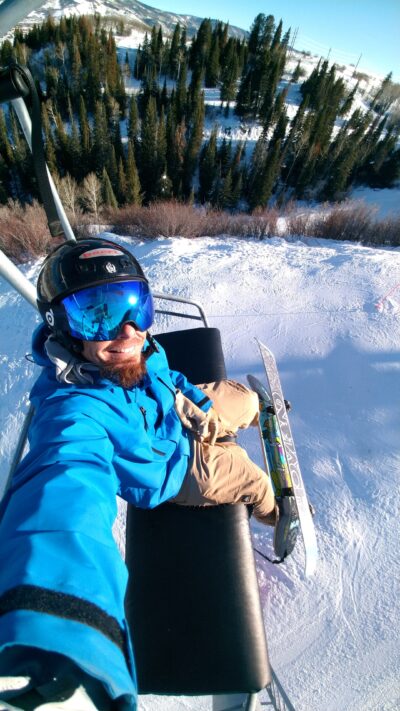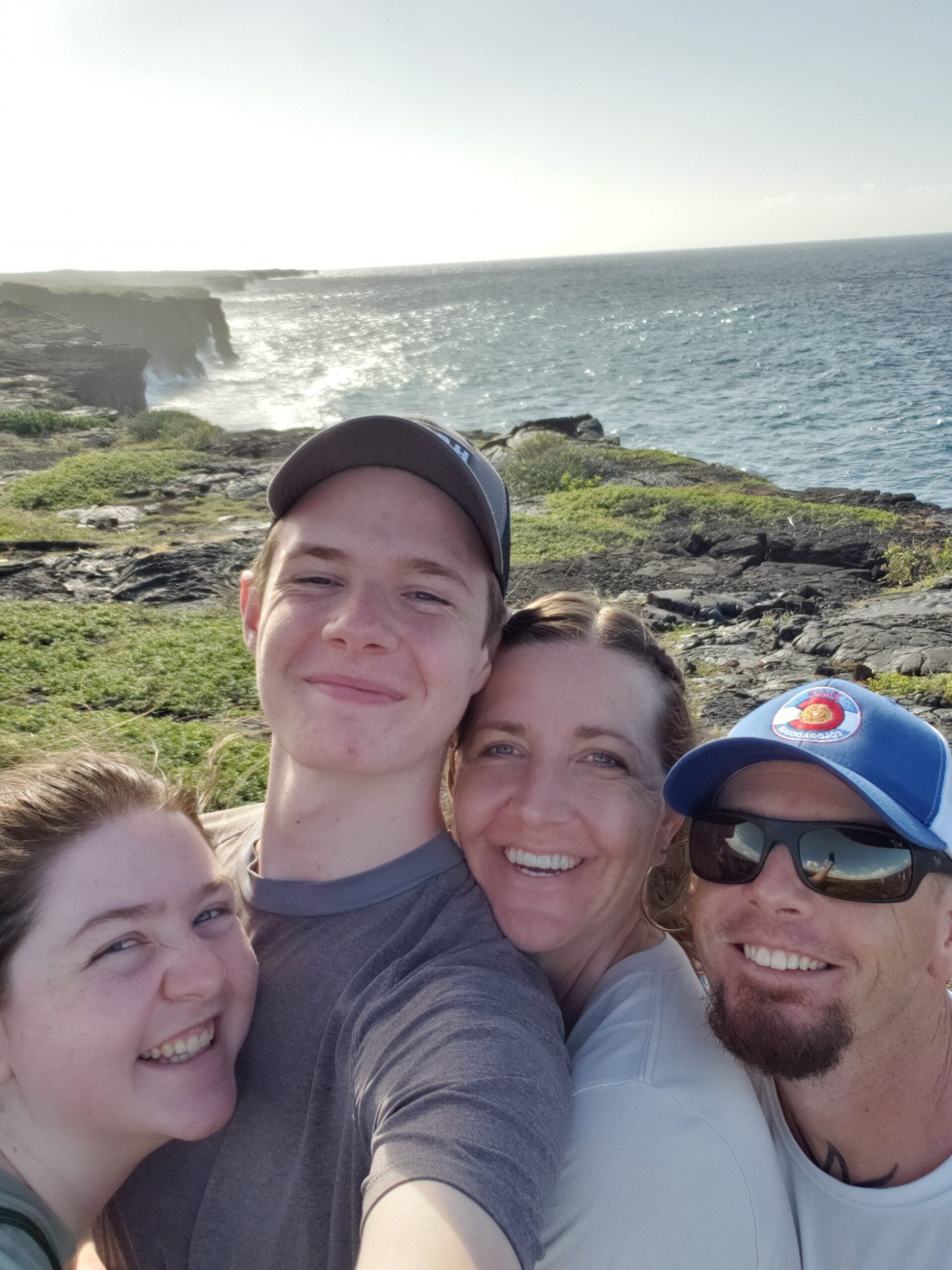Recovery must always be chosen. It can’t be forced. If it becomes forced, treatment can be viewed as a punishment rather than a form of stability and hope.
Those are the beliefs of Walt Copeland, a Hayden native who struggled with substance use disorder (SUD) for nearly 10 years. Substances became his solution to deal with his emotions — the good and the bad. And as someone who was once forced into recovery and then later chose it, his goal is to educate others about SUD and the stigma that surrounds it.
“I’m grateful to be here and to be of service to help others,” he said. “My goal is to be a part of the solution. I feel very honored to have this opportunity to share my story.”
Internal battles, external struggles
Copeland’s experience with substance use started prior to middle school, when he and his friends used to steal cigarettes from their parents for fun. He eventually found his way to liquor cabinets and liked how substances made him feel fearless and free — a feeling he now understands was a coping mechanism to avoid facing his internal battles.
When Copeland got to college, he started to experiment with other substances, ranging from marijuana to stimulants. But when he entered his 30s, things began to go downhill. Copeland started to sell substances so he wouldn’t have to buy them, and he was eventually arrested for possession.
It was during this time that he was issued rehabilitation as a form of punishment. If he accepted rehab, he would avoid jail time. This is where his mind associated treatment with punishment, and when he thought of recovery as something that was forced upon him instead of something he chose.

Walt Copeland snowboarding.
“Everyone was in there for the same reason — because ‘the man’ was making us do it,” he said. “It made us feel like we were bad people because we liked to alter our state of being, even though at the end of the day I wasn’t endangering others. I was just endangering myself.”
Recovery became a way for him to avoid consequences. And although Copeland was sober for one year after this — admittedly, due to his probation — he never really healed from the root of what was driving him to find solace in substances.
Hitting soft bottom
Copeland describes his experience with SUD as hitting soft bottom instead of rock bottom. He didn’t have a life-altering experience or that one “a-ha” moment in which he realized he wanted to change his life.
“It was more of a slow burn,” he said. “I started to look forward to getting off work to go drink. It became a real habit. I couldn’t say ‘no’ to alcohol if I tried.”
Copeland said his reliance on alcohol got to the point where it didn’t matter the size of the bottle — he would finish every last drop. When he wasn’t drinking, he felt sick and agitated. He had constant headaches. He needed it to function.
Then his wife, Jessica, got ill. She stopped drinking alongside Copeland to eliminate her health conditions and symptoms. When she became sober, Copeland’s struggle with alcohol became more apparent, and his altered states more drastic. But when they were drinking together, neither noticed.
Eventually, Jessica connected her husband with Chris Ray from SoBoat Steamboat to consider recovery amongst others in similar situations. Copeland said Chris introduced him to a life of fulfillment and understanding, and the two have a relationship that feels like they’ve known each other since childhood when it’s only been a few years.
“When I was in rehab, I was just going because I had to,” he said. “But through peer-to-peer influences and seeing people enjoying their lives without substances, it felt different. It changed my life.”
Chris also connected him to Ryan, Copeland’s sponsor. Copeland called Ryan every day for motivation while he was going through his 12-step program. Ryan always told him that when he chose recovery, he’d one day be doing things he never imagined. He was right.
Jessica was Copeland’s biggest support system while he recovered. The couple met in high school and they’re the young parents of two children.
“I put that woman through hell and instead of kicking me to the curb, she helped me get better,” Copeland said. “I’m never going to be able to repay her for that, but I’ve become the man she deserves because of her everlasting devotion to me. I’m so grateful for her.”
With healthy, supportive influences in his life, Copeland has been sober since November 20, 2020. Copeland enjoys spending his days around others who cherish the best moments in life without the crutch of substance use.
“It’s a big step to ask for help and to truly put in the work,” he said. “But this group has really been here for me no matter what. It’s really special. I thought I would go to SoBoat and learn how to drink and use responsibly, but it’s more than that. It’s learning how to use a different solution for life’s up and downs. Once I started doing that — letting go of regrets of the past and fears of the future — I didn’t have anything within me to drown or bury in substances.”
Advocating for future generations
Before beginning his recovery, Copeland described himself as having a deterred, angry and agitated demeanor.
“The world didn’t fit me, and I didn’t fit the world,” he said. “I got by just fine and was good at my work, but I didn’t feel like I was a part of something. I would be surrounded in a room full of people and feel alone.”
But now, Copeland looks at his calendar with contentment and excitement. He looks forward to SoBoat barbecues and other activities, and helping others through his supportive peer roles for the Steamboat Gentlemen’s Group and other 12-step meetings. He’s active and wants to be a reliable asset in his community for those going through the same struggles he once faced.

Pictured: Walt’s children, Mackenzie and Walter, his wife, Jessica and Walt.
“Nobody ever gave up on me,” he said. “Usually, the only one who gave up on me was myself. Once I was able to get over that, I was able to get over my regrets and move forward.”
Copeland believes that by eliminating the stigma surrounding substance use disorders, the next generation will be able to seek the help they need faster and easier. If Copeland had these same resources when he was younger, life may have turned out differently for him.
“I love this community and what we’re creating by ending the stigma,” he said. “People are going to get the help they need, and that’s all you could ever ask for. I still can’t believe I am where I am today.”
“Anyone who is out there struggling, please know you don’t have to do it alone,” he concluded. “We’re here for you. If you make the effort to reach out, we’ll be there for you when you’re ready to make a change.”
